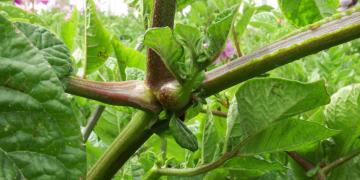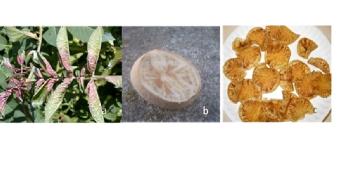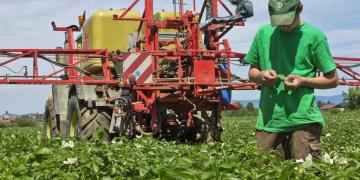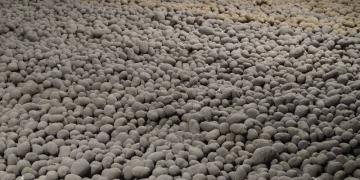EU: Late Blight Evolves, Europe Urged to Act
Europatat hosted a high-level webinar earlier this week to address one of the most pressing threats facing Europe’s potato industry: the rapidly evolving challenge of Late Blight caused by Phytophthora infestans.
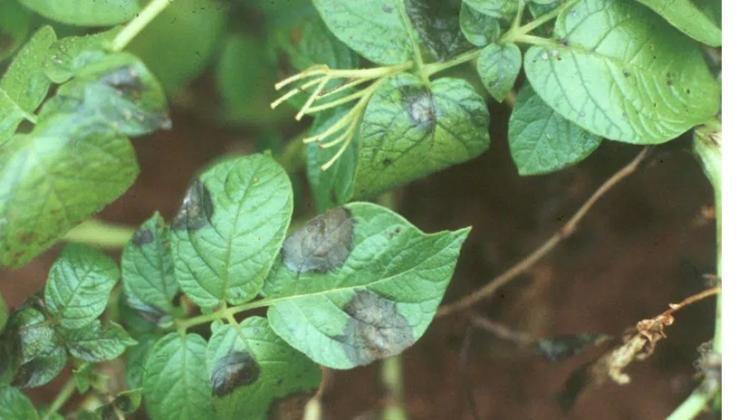
The virtual event, titled “Phytophthora Under the Lens: A Critical Challenge for Europe’s Potato Sector,” brought together technical experts, policymakers, grower organizations, and research partners to share the latest developments and strategies in managing this persistent and adaptive pathogen.
As potato growers across Europe face increasing losses from Late Blight, the urgency of coordinated action and innovative solutions has never been greater.
This webinar followed the launch of the EU Action Plan in 2024, a strategic initiative aimed at mitigating the threat of Late Blight through improved monitoring, resistance management, and policy support. The collective consensus among speakers was clear: Phytophthora infestans is advancing faster than current control methods can keep up, and unless the industry responds collectively, potato production — and the economic stability of the sector — could be seriously compromised.
David Cooke, head of EuroBlight at the James Hutton Institute, emphasized the importance of tracking pathogen populations to inform practical management.
“The webinar provided a great opportunity to share information on what makes the potato late blight pathogen such a tough organism to manage,” he said. “The coordinated EuroBlight monitoring of Phytophthora infestans populations has demonstrated the benefits of tracking pathogen evolution to update best practices for blight management. The meeting highlighted that there is more to do — increasing pressures on host resistance and fungicide availability will require a concerted effort, and this is now the focus of EuroBlight science and industry partners ahead of our next meeting.”
For potato growers, this evolving pathogen isn’t just a scientific concern — it’s a tangible threat to their yields, profitability, and long-term viability. Jack Vossen from Wageningen Research explained that the pathogen is outpacing current resistance strategies.
“Late Blight R genes can be protected by fungicides, and fungicides can be protected by R genes,” he said. “But the speed at which varieties with R gene stacks are bred is currently outpaced by Phytophthora’s adaptation. The use of single R gene varieties has already provided Phytophthora with the stepping stones to overcome R gene stacks.”
He called for “a European, sector-wide collaboration to design and implement regulations to retain host resistance as a control measure for the future,” emphasizing that “the current pace of breeding is not enough to keep up with pathogen evolution.”
Lars Bødker of SEGES Denmark noted that the disease’s spread is a transnational issue —one that requires cross-border cooperation.
“From Denmark’s perspective, the webinar showed the big challenge of potato late blight across borders in Europe,” he said. “Denmark is in the forefront in the fight against Phytophthora due to limited fungicide options, but we need a cohesive effort across the entire supply chain. It’s essential to develop new tools and deliver consistent, effective control strategies to growers and advisors.”
Bayer’s Albert Schirring warned that the pathogen’s rapid evolution is undermining current control tools. “The alarming speed at which Phytophthora infestans is overcoming novel resistance genes and developing resistance to fungicides with specific modes of action is concerning,” he said. “The rapid restrictions or removal of effective fungicides will significantly reduce farmers’ ability to control Late Blight, putting the entire supply chain at risk.”
He concluded that “EU policy change is needed to support both the quick introduction of new innovations and the sustainable use of existing crop protection products,” stressing that “all stakeholders must work together to protect farmers’ incomes and keep potato prices affordable for consumers.”
The webinar’s message was supported by Geert Pinxterhuis of BO Akkerbouw in the Netherlands, who highlighted the urgency of resistance management. “Late Blight is developing rapidly in a very worrying way,” Pinxterhuis said. “The tools farmers rely on are vulnerable, so we must use them wisely and raise resistance management to a high level.” He urged policymakers to “be well aware of this wicked problem” and to “facilitate the maintenance of an effective crop protection toolbox and support the use of new breeding techniques.”
Late Blight remains a leading cause of crop loss in Europe, affecting everything from farmer income to regional food security. The pathogen’s capacity to adapt, develop resistance, and bypass existing controls means that without urgent, coordinated, and innovative responses, the sector could face even more severe impacts.The consensus among speakers was clear: managing this threat requires collaboration across borders, investment in research and new tools, and proactive policy measures.
As Romans Vorss of Europatat summarized, the webinar underscored that “Late Blight is not just a challenge for today but a threat that demands immediate action from all stakeholders. If we don’t act now, we risk losing significant portions of Europe’s potato production.”
The message is loud and clear: Europe’s potato sector must act swiftly and collaboratively to address the evolving threat of Late Blight. Without a coordinated response — encompassing research, regulatory support, and best practices — potato yields and farmers’ livelihoods remain at significant risk. The webinar emphasized that tackling Phytophthora infestans is not just a scientific challenge but a farm-level imperative, critical to maintaining supply, safeguarding income, and ensuring the affordability of potatoes for consumers across Europe.
Fuente: spudsmart.com







